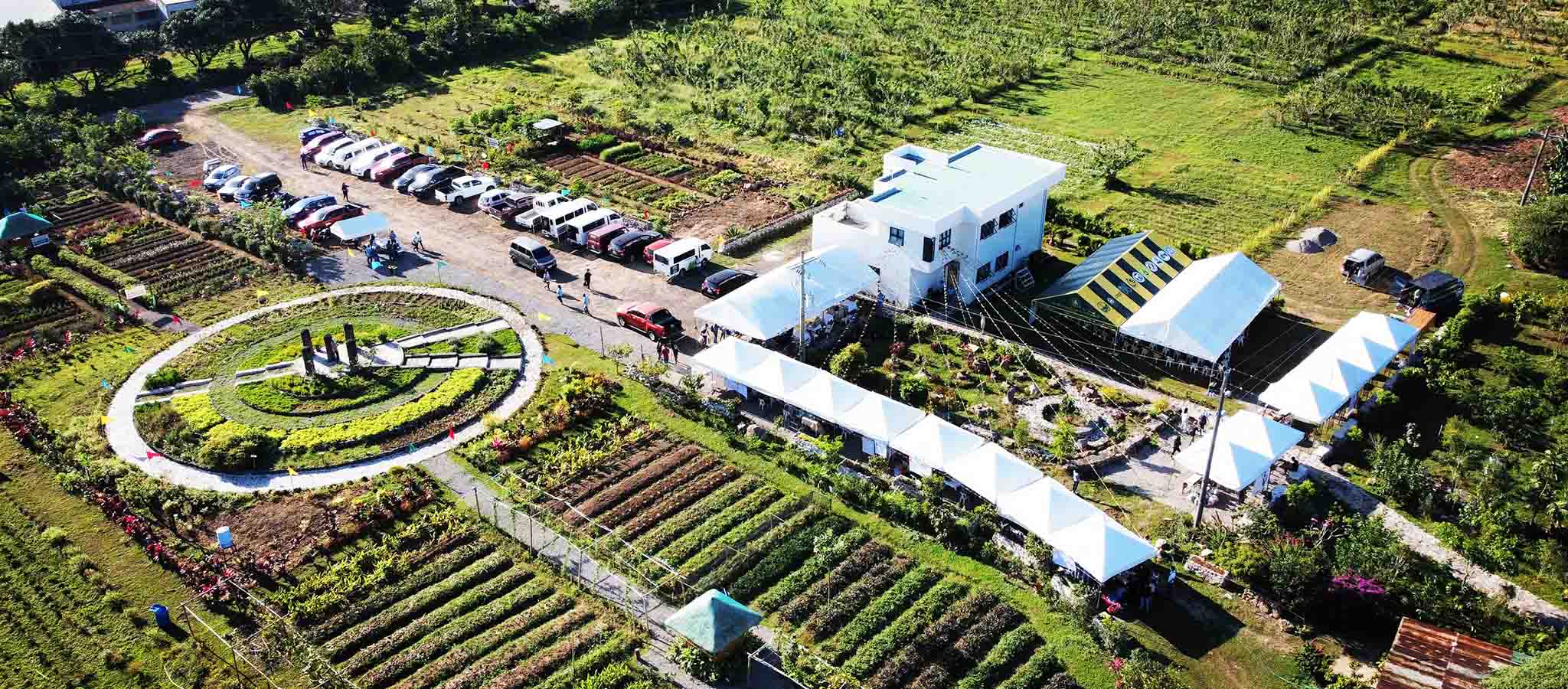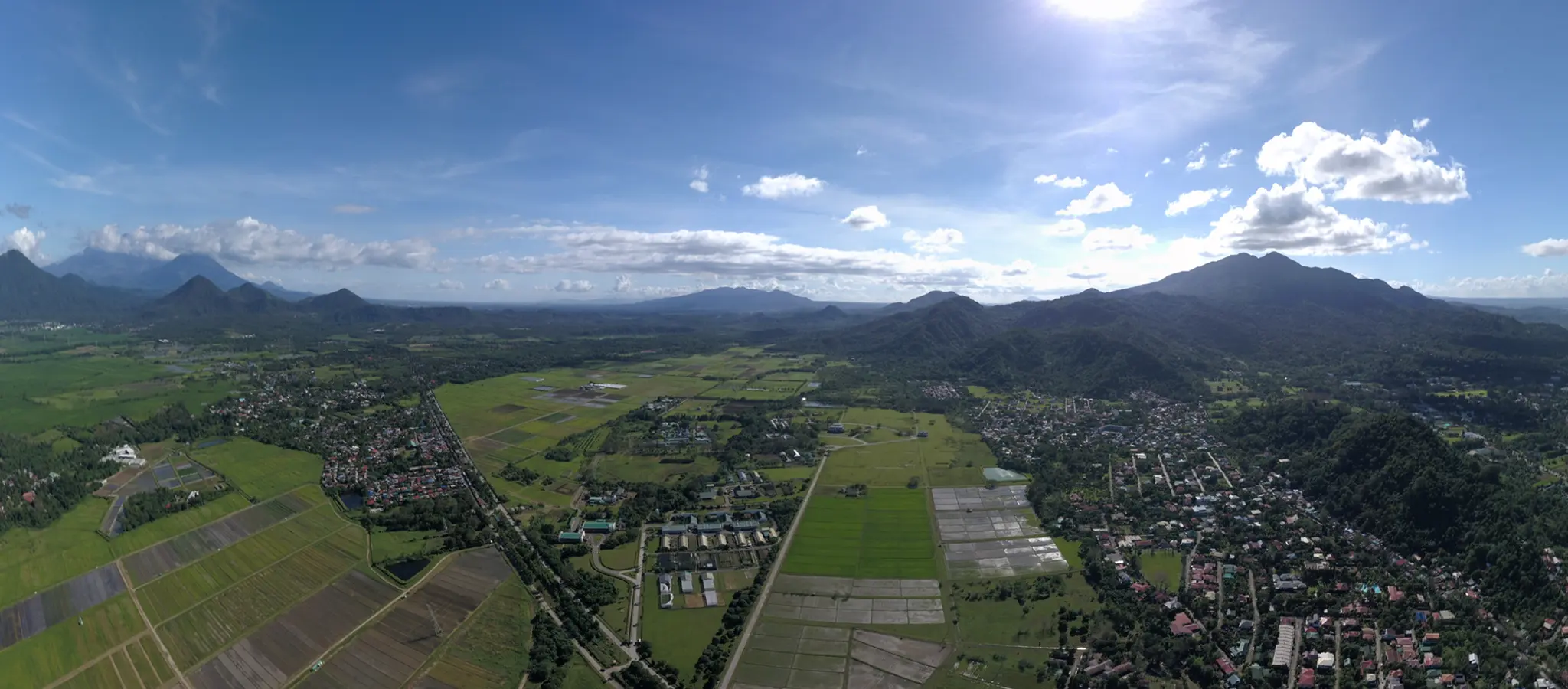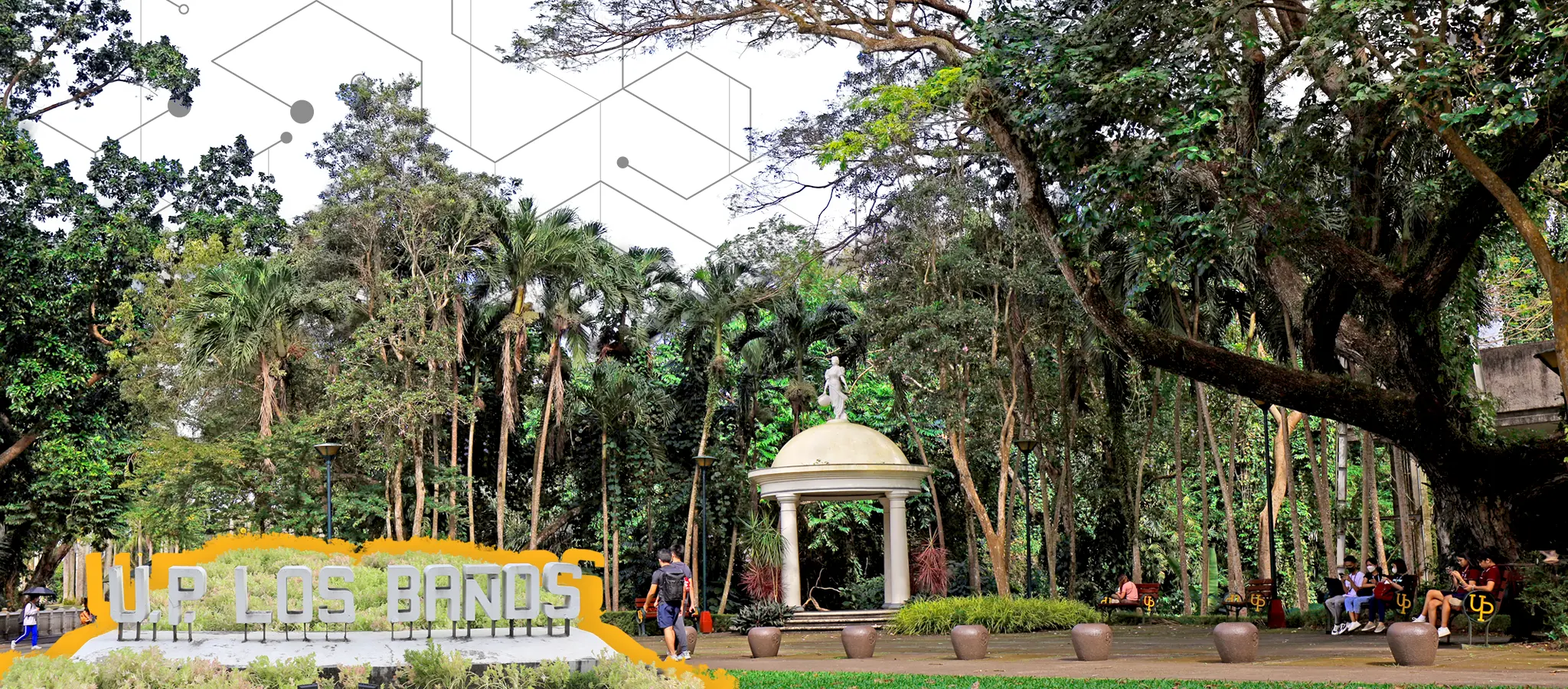
The Interdisciplinary Studies Center on Organic Agriculture (IdSC-OA) and the Organic Agriculture Program of the Agricultural Systems Institute, College of Agriculture and Food Science (ASI-CAFS) hosted the first “OA Fair @ UPLB” at the Organic Agriculture Research, Development, and Extension Center (OARDEC) in the UPLB campus on March 8.
The OA Fair @ UPLB was organized to promote organic agriculture (OA) technologies, produce, and products of various stakeholders such as farmers’ associations, social enterprises, academe, and private sectors. It was also a venue for information exchange and for establishing and renewing collaborations and partnerships among the different OA stakeholders.
More than 500 attendees, including representatives of agencies under the Department of Agriculture such as the National Organic Agriculture Program-National Program Coordinating Office (NOAP-NPCO), Bureau of Soil and Water Management (BSWM), Agricultural Training Institute (DA-ATI) Region IV-A, and the Regional Field Office (DA-RFO) IV-A. Also present were representatives of the Department of Education (DepEd) Laguna, Mayor Angelica Portes-Tatlonghari of Pagbilao, municipal agriculturists, OA farmers’ associations, practitioners, advocates, research institutions, private and state university faculty, public school teachers, students, non-government organizations, private organic farm owners, exhibitors, and product sellers.
At the opening program, ASI Director Virgilio T. Villancio welcomed the guests and speakers from DA, UPLB officials, the president and staff of Earthman and Co., Mayor Portes-Tatlonghari, officers and employees of provincial and municipal agriculture offices, exhibitors and sellers, and visitors, among others.
UPLB Chancellor Jose V. Camacho lauded the organizers for conducting the OA Fair as one of the highlights of the 114th UPLB CAFS Foundation Day celebration. He extended his gratitude to the government agencies instrumental in promoting OA.
He reiterated the role of OA in addressing food security and sovereignty, one of the four focus areas of AGORA (Accelerating Growth Through One Research and Extension in Action). He expressed high hopes that more farmers will be engaged in OA to increase the supply, lower prices, and satisfy the high demand for organically grown produce.
He also mentioned that ASI, IdSC-OA and DepEd collaborated to promote OA awareness among school children and stressed the importance of promoting OA to more farmers, women, and the community.
Soledad E. Real, the representative of the DA-ATI Region IV-A, expressed the need for collective efforts to create an environment for organic food production and consumption to become a lifestyle among Filipinos. “Together, we push for a more competitive and sustainable organic agriculture in the future,” she said.
In her inspirational message, Eda Dimafilis, the OA focal person and representative from DA-RFO IV-A CALABARZON, highlighted the continuing support of the regional office in OA since the OA Act was passed in 2010. Also, Ms. Dimafilis recognized the presence of the “Samahan ng Organikong Industriya ng Laguna” (SOIL) Agricultural Cooperative as the first Participatory Guarantee System-Organic Certifying Body (PGS-OCB) in Calabarzon and 4th in the Philippines. Dimafilis mentioned some market opportunities for organic products to benefit farmers practicing OA. On behalf of Dir. Delos Reyes, Dimafilis expressed her gratitude for the continuing support of UP Los Baños to OA.
Representing the DA-National Organic Agriculture Program, Ms. Maria Teresita Lesaca, Development Management Officer, emphasized the contribution of organic agriculture in addressing challenges to soil degradation and loss of biodiversity. The NOAP aims to strengthen the organic agriculture industry and uplift organic farmers and stakeholders. She encourages everyone to take part in developing local and national strategies to further advance the organic agriculture industry.
The turnover of a brand-new nursery tunnel greenhouse was led by Mike Melendres, a CAFS alumnus and founding president of two OA-related companies, the Earthman Consulting and Development Corporation (Earthman & Co.), and the Organic Options, Inc.
He handed over the deed of donation to Chancellor Camacho, CAFS Dean Elpidio Agbisit, ASI Director Villancio and Dr. Calub to give back to his alma mater and support the OA programs of UPLB.
Lastly, Dr. Blesilda M. Calub, chair of the IdSC-OA and Dr. Leila Landicho provided the overview of the UPLB OARDEC and OA Fair Activities, respectively. Dr. Calub shared the history of the OARDEC from its inception to its inauguration in 2019. She sincerely thanked DA-BAR and UPLB for successfully establishing an OA center in UPLB.
On the other hand, Dr. Landicho introduced the activities during the whole day OA Fair. The attendees actively participated in the activities such as the OA Techno Tips (practicum-seminar presentations), cooking demo, guided field tour, product and technology displays and games.
In the OA Techno Tips, the following practicum-seminar topics were presented and shared by experts of CAFS UPLB: Organic Seed Selection and Storage was discussed by Dr. Lucille Elna De Guzman; Organic Seedling Production and Transplanting by Dr. Blesilda M. Calub; Organic Post-harvest Handling by PHTRC Director Dormita del Carmen; and Organic Poultry (cockerel) Raising by Dr. Noel B. Lumbo. More fun was added when participants raced to answer trivia questions and were given prizes such as selected OA handbooks, potted plants, and microbial inoculants from UPLB Biotech.
For organic food enthusiasts, the cooking demo provided excitement and disseminated awareness of the importance of eating nutritious food. The enticing “slow food” recipe of nutritious champorado garnished with edible flowers and soybean milk from Likhaya Food was introduced by Chef Harold Bueno, dean of the Higher Education Department of Far Eastern University in Cavite and an advocate of the Slow Food Movement.
On the other hand, Chef Von Ryan Ebron, a faculty member at the College of Human Ecology (CHE) of UPLB, demonstrated a puto recipe using the Nixtamalized Corn Flour developed by the CHE with funding from DA-BAR.
A field tour was also conducted for several batches of small groups to visit and learn from five field stations at OARDEC, namely: the Medicinal Plants station; Edible Garden; Organic Soil Amendments; OA technology showcase (Crop Rotation, Diversified Cropping, Intercropping, and Cover Cropping), and Integrated Organic Crop-Animal Systems with Stingless Bees and Organic Cockerel Raising.
Dr. Elpidio M. Agbisit Jr., CAFS dean, closed the program by extending his gratitude to all participants as well as the organizers of the event. Dean Agbisit opened his speech with a poem entitled “Farming” by Rey Benipayo. The poem is about the changes in agricultural lands over time and the imminent threat of technologies that jeopardize the industry. He reminded everyone that CAFS is the eldest college in UP Los Baños and that it should take the lead in agriculture and food science research. He challenged everyone to participate in OA to benefit the Filipinos and the community.
Dean Agbisit led in awarding certificates of recognition to the sponsors, lecturers, and chefs. The exhibitors and farmers’ associations were given certificates of appreciation.
Thirteen exhibitors and 21 organic agriculture food and non-food product sellers joined the exhibit. Each booth highlighted OA products such as fresh produce, processed food, non-food products, communication materials, and technology displays. The showcase of organic products, especially by the farmers’ associations, is an effective strategy to create markets and establish partnerships with other stakeholders.
The success of the first OA Fair @ UPLB was made possible through the sponsorship of the Philippine Council for Agriculture, Aquatic, Natural Resources Research and Development and Lifebank Foundation, Inc., counterpart funds from ASI-CAFS and in-kind contributions and services from UPLB units and colleges, and the active participation of all attendees.
Share this on:



